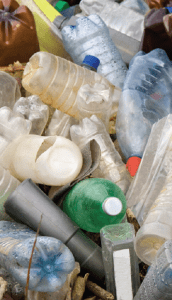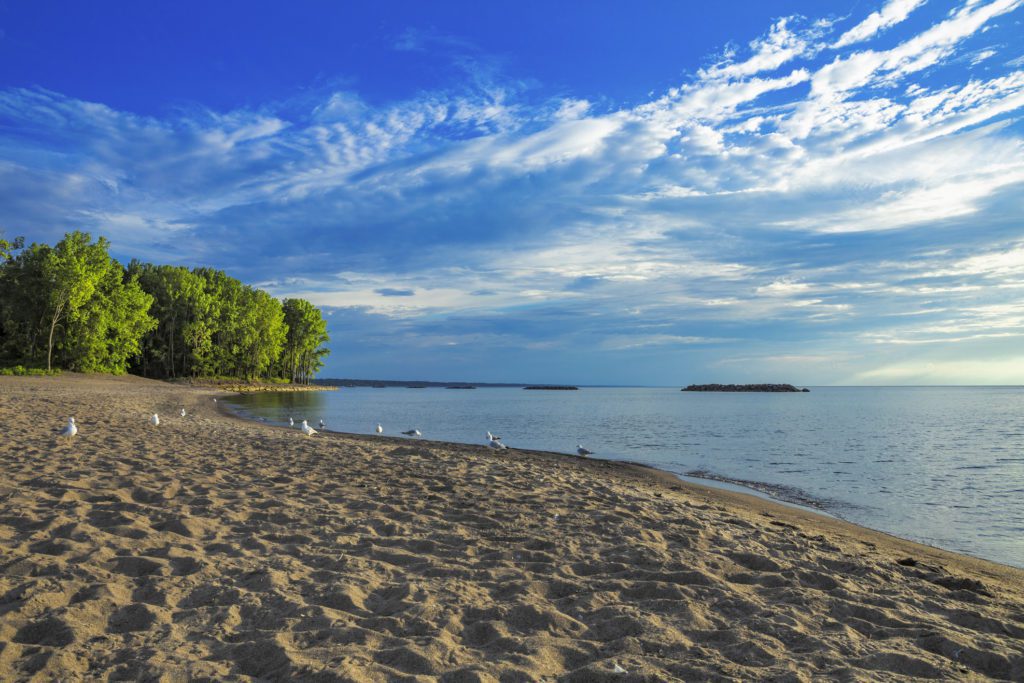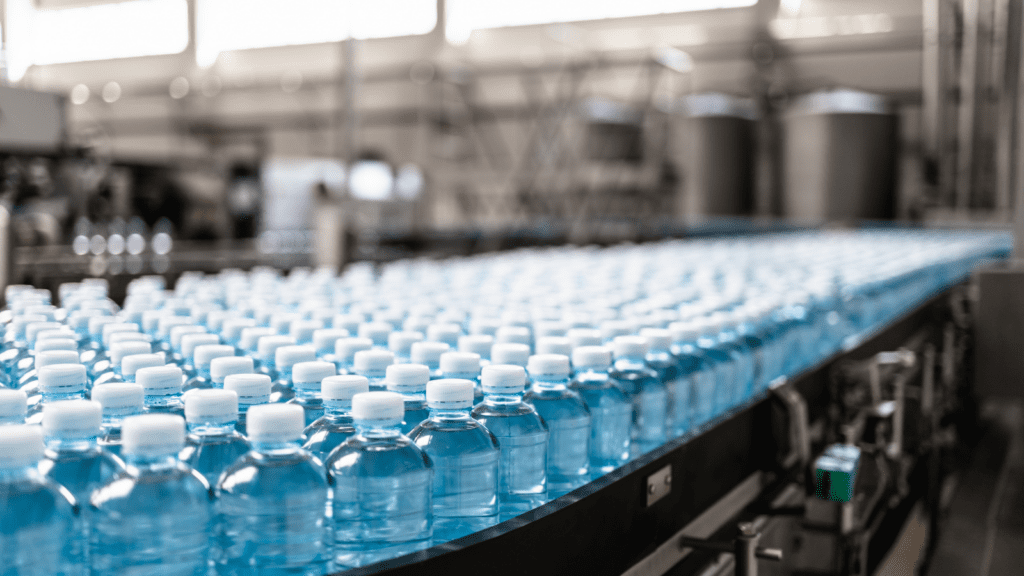Did you know that one billion plastic bottles are not recycled in Ontario every year? And that those bottles are ending up in landfills or the environment?
year? And that those bottles are ending up in landfills or the environment?
The province’s Blue Box program just isn’t cutting it. Ontario has the lowest recycling rate for plastic bottles in all of Canada. The good news is that there are solutions to this problem. And as Ontario overhauls its waste legislation, there’s an opportunity for solutions to come forward.
In our new report, we call on Ontario to put in put in place a deposit return on single-use plastic bottles, which is the best way to increase recycling rates and reduce plastic pollution.
Why a deposit return?
Ontario is one of only two provinces without a deposit return program (DRP) for plastic bottles. The province also only recovers about 50 per cent of its plastic bottles for recycling. In comparison, Canadian provinces and territories with deposit return systems recover between 72 per cent and 95 per cent of their bottles. The reason for this is that DRPs make an empty bottle worth something, giving people an incentive to recycle the bottle and collect the deposit.
Ontarians already know firsthand that deposit return programs work – the province has a very successful one for wine and beer. Thanks to that program, beer bottles and cans are returned at a rate of 98 per cent and 82 per cent respectively—proof that putting a price on containers works.
How does it work?
When buying disposable plastic water bottles, consumers also pay a deposit – usually 10 cents — which would be returned when the bottles are brought back. There are a number of options for the collection of the bottles including reverse vending machines that give out money in exchange for empty bottles, or dedicated return depots.
The money from unclaimed deposits, those that are not returned at a depot or machine could be a source of revenue for environmental programs in Ontario. We think the unredeemed deposits should be channelled toward protecting the Great Lakes. New Brunswick’s deposit return program helps raise money for New Brunswick’s Environmental Trust Fund. It’s a model Ontario should follow.
What’s at stake
Plastic pollution levels are getting out of control in the Great Lakes. Eighty per cent of the litter in the Great Lakes Basin is plastic. The concentrations of plastic bits in some parts of the Lakes rival those found in the Great Pacific Garbage Patch. A price on plastic, via a deposit return program, is a great way to tackle one major source of the pollution that’s lapping at our shorelines and piling up in our waterways: single-use plastic water bottles.
Plus, a deposit return program would generate revenues that could be used to tackle other Great Lakes problems, like algal blooms on Lake Erie. Ontario has signed a bi-national agreement with Michigan and Ohio to work to reduce phosphorus, which causes algal blooms, from entering Lake Erie. But despite this commitment, and the fact the province recently passed The Great Lakes Protection Act, funding for these efforts falls far short of what’s needed.
Using proceeds from a deposit return could be a great way to close this funding gap.
Take action
Want to help protect our waters? Take action: Tell Ontario to “Cash it! Don’t trash it” by introducing a deposit return program to reduce plastic waste and help fund efforts that keep our waterways clean.








